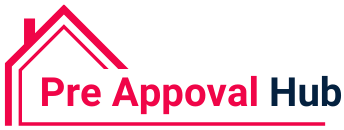Buying a home is one of the most significant financial decisions most people will ever make. While house hunting can be exciting, it can also be stressful especially if you’re unsure about your financing options. That’s where mortgage pre approval comes in. Understanding this process can save you time, reduce stress, and increase your chances of securing the home of your dreams.
What is Mortgage Pre Approval?
Mortgage pre approval is an early evaluation by a lender to determine how much you can borrow for a home loan. Essentially, it is a conditional commitment from the lender stating the amount you are eligible to borrow based on your financial situation, credit history, and income.
Unlike a pre qualification, which is a basic estimate, pre approval involves a more in depth review of your finances. Lenders often check your credit score, income statements, tax returns, and other financial documents to issue a pre approval letter. This letter signals to sellers that you are a serious buyer and capable of securing a mortgage.

Why Mortgage pre approval is Important
- Know Your Budget
One of the biggest benefits of pre approval is that it tells you exactly how much you can afford. This helps you narrow down your property search to homes within your budget, saving you time and avoiding disappointment. - Strengthen Your Offer
Sellers prefer buyers who have pre approval letters because it demonstrates financial reliability. In competitive real estate markets, a pre approved buyer often has an edge over others who are not pre approved. - Faster Loan Processing
Since the lender has already reviewed your finances, the actual mortgage approval process can be faster. This can be crucial if you want to close quickly and secure your property. - Spot Potential Issues Early
pre approval can uncover credit or income issues before you start house hunting. Addressing these problems early increases your chances of final loan approval and better interest rates.
The Mortgage pre approval Process
The process may vary slightly between lenders, but generally, it involves the following steps:
- Initial Application
You provide basic personal and financial information such as your income, employment status, debts, and assets. This can often be done online or in person at a bank or mortgage broker. - Document Submission
Lenders request documents to verify your financial status. Commonly required documents include:
- Recent pay stubs or income statements
- Tax returns
- Bank statements
- Identification documents (e.g., passport, driver’s license)
- Credit Check
Lenders review your credit history to assess your creditworthiness. A strong credit score can help secure a better interest rate. - pre approval Decision
After evaluating your information, the lender issues a mortgage Lender stating the maximum loan amount and potential interest rate. This letter is usually valid for 60 to 90 days.
Types of pre approval Letters
Mortgage pre approval letters can vary in formality and certainty:
- Conditional pre approval: The lender has reviewed your financial documents but may require further verification or a specific property appraisal.
- Full pre approval: The lender has completed the review and can guarantee the loan amount, provided your financial situation does not change.
Understanding the type of pre approval is crucial when making offers on properties.
Tips for a Smooth pre approval Process
- Check Your Credit Score
Before applying, review your credit report for errors. A good credit score can help you get lower interest rates. - Gather Financial Documents
Having pay stubs, tax returns, and bank statements ready can speed up the process. - Avoid Major Purchases
Don’t make large purchases or take on new debts before or during pre approval, as this can affect your borrowing capacity. - Compare Lenders
Different lenders may offer different rates and loan terms. Shop around to find the best deal. - Be Honest
Provide accurate information about your income, debts, and employment to avoid delays or rejection.
Common Myths About Mortgage pre approval
Myth 1: pre approval Guarantees Loan Approval
While pre approval indicates a strong likelihood, it is not a final approval. Your financial situation must remain stable until the loan closes.
Myth 2: pre approval is Expensive
Most lenders offer pre approval for free or a minimal fee. It’s a small investment compared to the benefits it provides.
Myth 3: Only First Time Buyers Need pre approval
Any buyer, whether a first time homebuyer or a seasoned investor, can benefit from pre approval. It strengthens your bargaining position and streamlines the buying process.
How pre approval Affects Your Home Search
A mortgage pre approval letter can shape your home buying journey in several ways:
- Helps set a realistic budget.
- Filters out homes you cannot afford.
- Provides a competitive advantage in bidding wars.
- Gives clarity on your financial readiness.
Essentially, it allows you to focus on homes you can genuinely purchase, reducing wasted time and emotional stress.
When Should You Get Pre Approved?
Ideally, you should seek pre approval before house mortgage pre approval hunting. Starting the process early gives you a clear understanding of your finances and puts you in a stronger position when making offers. If you wait until you find a home, you risk losing it to a buyer who was pre approved and ready to act.
Conclusion
Mortgage pre approval is more than just paperwork; it’s a strategic tool in your home buying journey. By understanding your borrowing capacity, improving your negotiating position, and addressing potential financial issues early, pre approval can make the path to homeownership smoother and more predictable.
Whether you are a first time buyer or an experienced investor, getting pre approved is a smart step that sets you up for success. Remember, the earlier you start, the stronger your position in the competitive real estate market.
